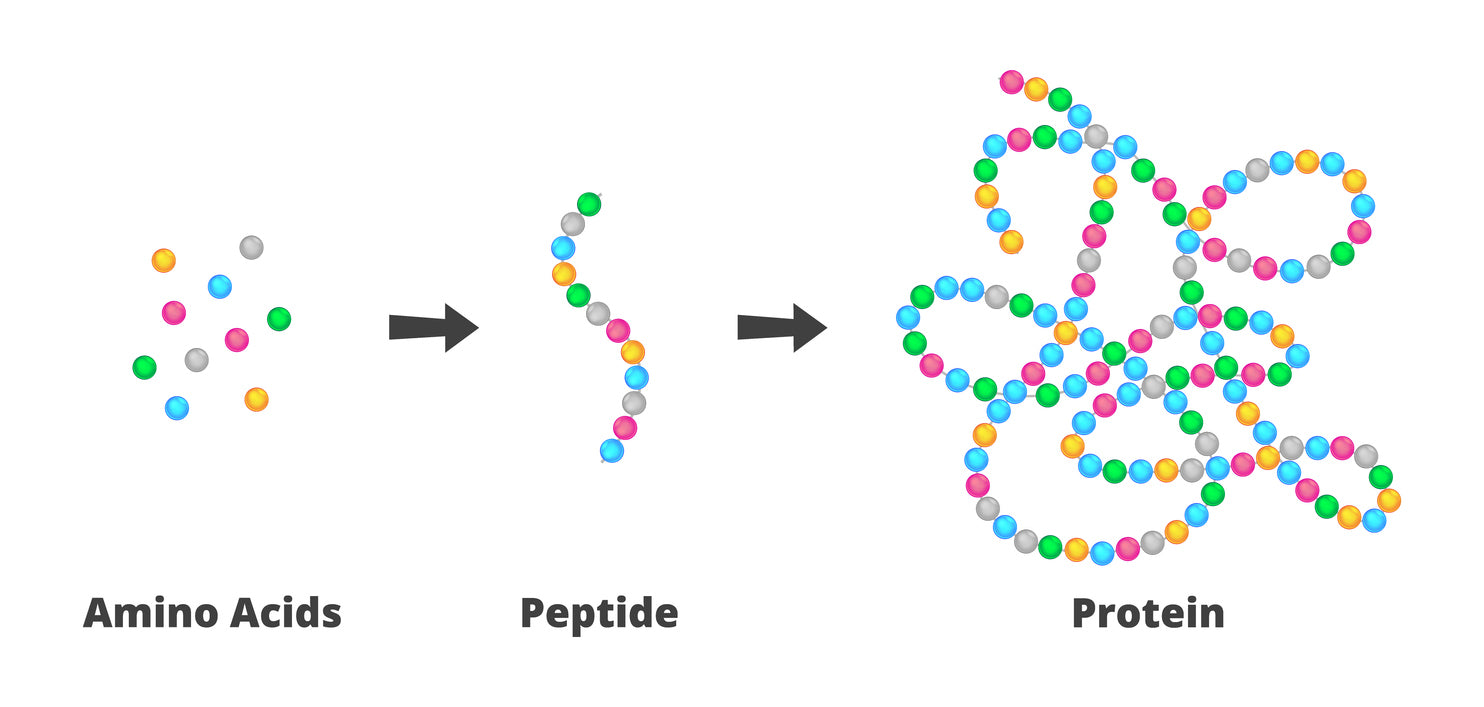Are peptides therapeutic or scandalous? In any introductory biology class, one learns that peptides are short chains of amino acids, which are the building blocks of proteins. When I first heard of peptides being used as a therapy four years ago at an anti-aging conference, my first thought was that it was rubbish and a fad that would be gone in several years. But I was wrong.
That’s because peptides can have a wide variety of functions in the body depending on their specific sequence of amino acids. Some are hormones, some stimulate hormone production, some are neurotransmitters, and others serve as structural components of cells. It is because of this diversity that peptides have such a wide range of potential therapeutic benefits. Here is my list of the top 10 therapeutic benefits of peptides:
- Anti-Aging and Skin Health:Certain peptides are known to promote collagen production and skin health, reducing wrinkles and improving skin elasticity. They are commonly used in anti-aging skincare products.
- Wound Healing:Some peptides play crucial roles in the healing process. They can stimulate tissue regeneration, reduce inflammation, and have antimicrobial properties, making them potentially useful in wound care.
- Pain Relief:Certain peptides can act as natural analgesics, helping to reduce pain.
- Hormone Production:Peptides like Human Growth Hormone (HGH) are used to stimulate cell growth and regeneration. Other peptides can stimulate the production of hormones that control metabolism, immune response, and other key processes.
- Weight Loss:Some peptides are known to promote weight loss by stimulating the breakdown of visceral fat. They can also increase satiety, which helps control appetite.
- Muscle Building:Certain peptides are used to promote muscle growth and recovery. They can stimulate protein synthesis and increase blood flow to muscle tissue.
- Bone Health:Some peptides can stimulate bone formation, making them potential therapeutic agents in conditions like osteoporosis.
- Neuroprotection:Certain peptides have neuroprotective effects, making them potentially useful in conditions such as Alzheimer's disease.
- Cancer Treatment:Some peptides can target cancer cells specifically, reducing tumor growth and proliferation. They are used in research for developing targeted cancer therapies.
- Improve Immune Function: Some peptides can modulate the immune response, either by boosting or decreasing immune activity as needed. One example of this is their ability to decrease chronic inflammation, which is an ongoing, low-level immune response.
I have been looking at peptide therapy for my oldest son whose shoulder is still not completely better. It would be partially for pain, partially for inflammation, and partially for muscle building.
But, it’s important to note that while there is promising research in these areas, many peptide therapies are still experimental and not yet approved for use by regulatory agencies like the U.S. Food and Drug Administration. Also, like any medication or supplement, peptides can have side effects and may not be suitable for everyone, so you’ll want to consult with your healthcare provider before starting any new treatment.







0 Comment